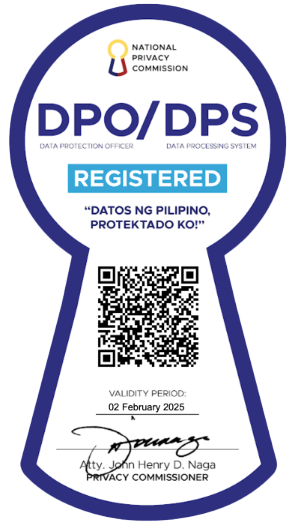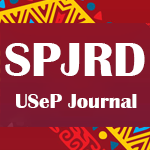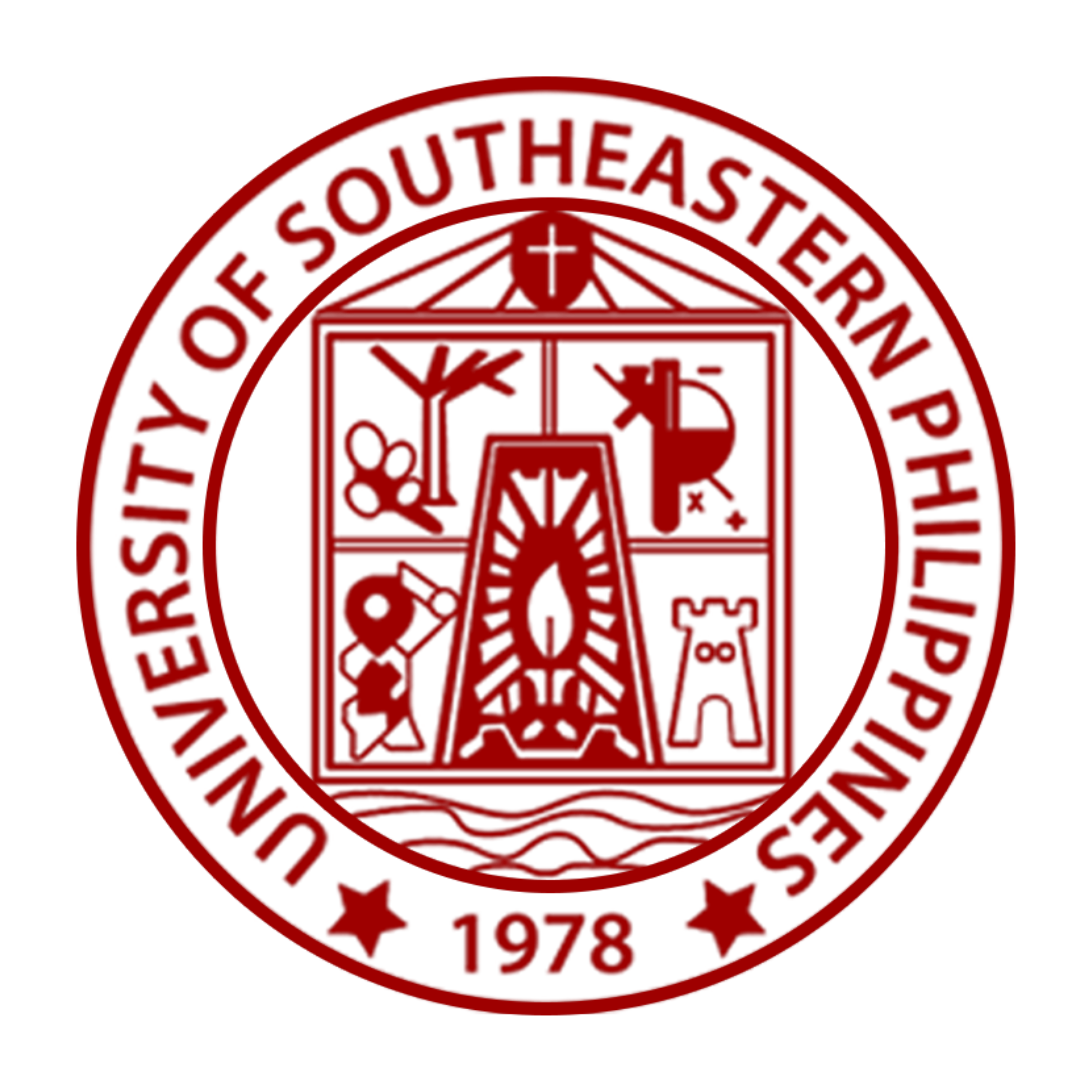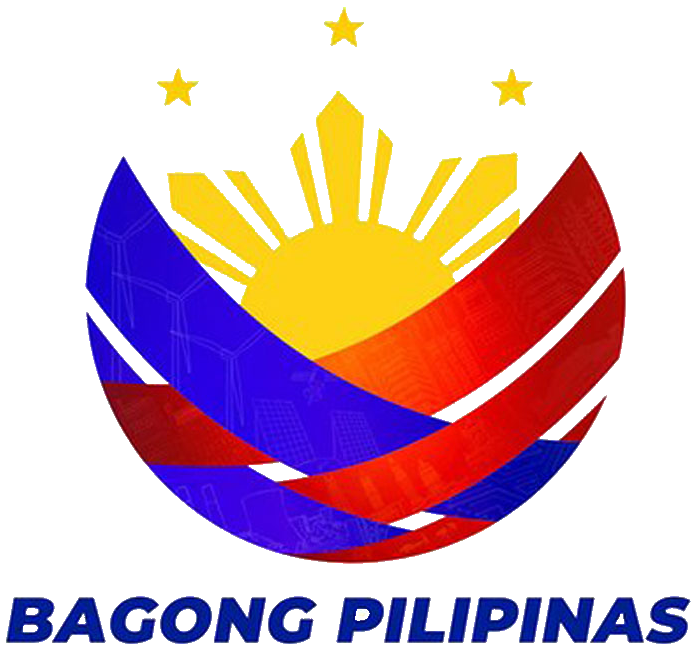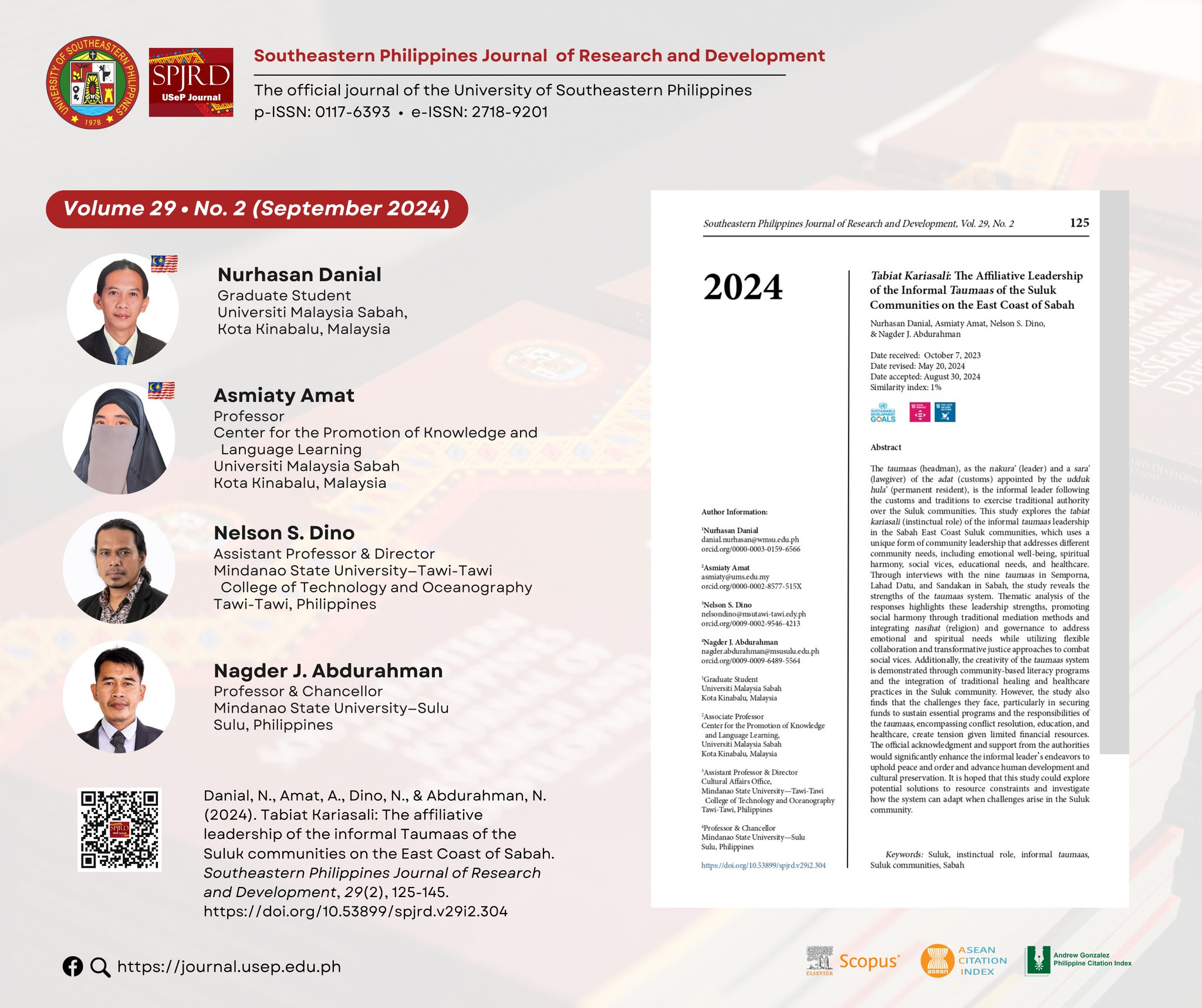
The eighth article of SPJRD in the September 2024 issue unfolds a compelling exploration of the informal leaders, or 𝘵𝘢𝘶𝘮𝘢𝘢𝘴, within the Suluk community of Sabah in Malaysia, in the study “Tabiat Kariasali: The Affiliative Leadership of the Informal Taumaas of the Suluk Communities on the East Coast of Sabah,” explored by Nurhasan Danial and Asmiaty Amat from the Universiti Malaysia Sabah in Malaysia, and Nelson S. Dino from the Mindanao State University—Tawi-Tawi College of Technology and Oceanography, and Nagder J. Abdurahman of the Mindanao State University—Sulu in the Philippines.
The researchers explore the way community leaders foster peace, promote human development, and preserve cultural heritage through their deep understanding of community needs. Furthermore, this study underlines how the 𝘵𝘢𝘶𝘮𝘢𝘢𝘴 navigate complex social dynamics, mediate conflicts, and support their followers’ emotional and spiritual well-being, guiding their communities toward harmony and solidity.
By examining the deep-rooted connections between the 𝘵𝘢𝘶𝘮𝘢𝘢𝘴 and their communities, the authors illustrate the importance of Indigenous leadership in fostering resilience and addressing modern challenges.
To read the paper, scan the QR code in the poster or click the link below: https://doi.org/10.53899/spjrd.v29i2.304


